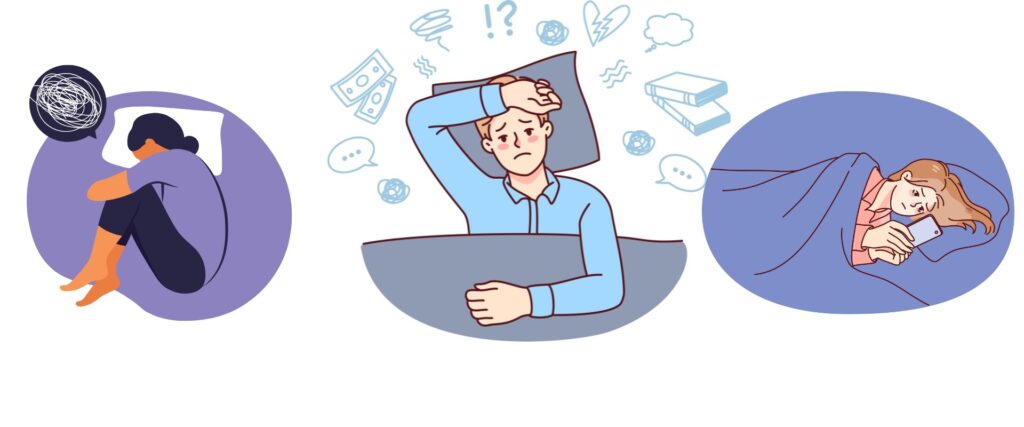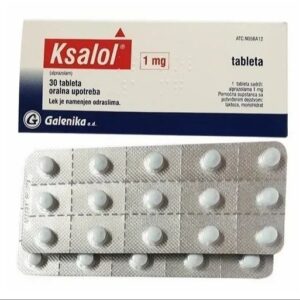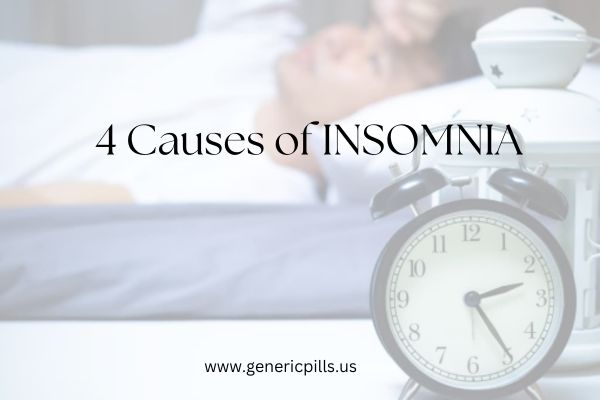4 Surprising Causes of Insomnia You Need to Know About
If you have spent many sleepless nights twisting and turning in bed, then you understand the annoying frustration and the exhaustion insomnia can inflict. Mostly, people attribute sleeplessness as being caused by stress, anxiety, or bad sleeping habits, though there are various less obvious reasons why you’ve yet to succeed in sleeping. Most often, the apparent causes are not the actual underlying ones; they hide, and you must uncover them to get that long-deserved rest. In this blog, we explore four surprising causes of insomnia you might not have considered, but that might just be the reason keeping you awake.
For many people, the medications they take every day are actually disrupting their sleep. From prescription antidepressants to over-the-counter pain relievers, there are some drugs that have sleep-disrupting side effects. Even medications that you might be taking for ADHD or high blood pressure could be contributing to your sleepless nights without you realizing it.
You might also be unknowingly guilty of eating patterns that cause poor sleeping. Of course, it is a no-brainer regarding caffeine, but some foods and beverages that you may ingest during the day still hamper your body’s ability to remain in a deep, restorative sleep pattern. Other foods or beverages that have a more indirect impact on sleep quality include spicy or sugary snacks and alcohol.
The other surprising factor which leads to insomnia is hormonal imbalances, perhaps because most people experience their most significant life changes while living through menopause or thyroid issues, so their hormones regulate the onset and cessation of sleep-wake cycles. If out of balance, they directly affect sleep patterns. By being aware of this connection, you can take measures to balance your hormones again.
Finally, most people do not know that the environment in which they sleep plays a big role in their quality of rest. Factors such as room temperature, light exposure, noise levels, and use of electronic devices right before bed can all disturb your sleep. A few simple changes to your bedroom setup can significantly improve your chances of getting a good night’s sleep.
Understanding the surprising causes of insomnia can be eye-opening and empowering. By taking a closer look at what you are ingesting, any medications you’re on, how your hormones are in check, and the environment around you while sleeping, you could identify the issue and make improvements to have good, restful sleep. If all these adjustments do not work, it is time to seek professional help for more complex matters, but getting at the bottom of your insomnia starts you on a road toward sleeping well for general health.
What is Insomnia?

Insomnia is a sleep disorder that makes it difficult for individuals to fall asleep, stay asleep, or wake up too early without being able to fall back asleep. This condition can lead to poor sleep quality, leaving individuals feeling tired and unrested during the day. Insomnia may occur occasionally or become a chronic issue, and it can be influenced by a variety of factors, including stress, anxiety, depression, medical conditions, lifestyle habits, or the use of certain medications. It often results in daytime fatigue, mood disturbances, and difficulty concentrating. Addressing the underlying causes of insomnia is important for restoring healthy sleep patterns and improving overall well-being.
Here are four surprising causes of insomnia that you need to know about:
1. Medications You Take Daily
Many of us are ignorant of the fact that some of the medications we regularly take could contribute to our problem of insomnia. From over-the-counter pain relievers to prescription drugs, a number of medicines have side effects that interfere with your ability to fall asleep or stay asleep. Common culprits include:
- Stimulants like those used to treat ADHD or narcolepsy (such as Adderall or Ritalin).
- Antidepressants, particularly selective serotonin reuptake inhibitors (SSRIs), which can disrupt sleep patterns.
- Corticosteroids used for inflammation, which may cause heightened alertness and disrupt your sleep.
Discussing with your physician may be very beneficial to you if you feel that perhaps your medications cause you insomnia, because they will probably adjust the dosage, recommend changing the drugs, or replace them with the least interfering counterparts with sleep.
2. Your Diet and Caffeine Consumption
What you eat and drink plays a big role in your ability to get a good night’s sleep, and surprisingly, some seemingly harmless foods and beverages can be the root cause of your insomnia. Caffeine is the most well-known disruptor, but it’s not just coffee that can keep you awake. Even chocolate, sodas, and some energy drinks contain caffeine, which can interfere with sleep if consumed too late in the day. Caffeine can stay in your system for hours, making it difficult to fall asleep even if you’re tired.
In addition, some spicy or acidic foods may cause acid reflux, which may exacerbate the problem of insomnia. Eating heavy meals just before bed may also cause discomfort and indigestion, thus disrupting your sleep further.
3. Hormonal Imbalances
Hormonal changes, such as those seen during menopause or thyroid disease, can disturb your sleep patterns. Women undergoing menopause have been known to have trouble sleeping due to hot flashes and night sweats. Thyroid dysfunction may cause hyperthyroidism, which creates restlessness and inability to sleep, or hypothyroidism, which brings about excessive sleepiness during the day and nighttime rest disturbances.
Hormonal fluctuations in both men and women, such as those associated with pregnancy or stress, can also affect sleep. If you’re experiencing difficulty sleeping and suspect a hormonal imbalance, it may be worth discussing with your doctor. Blood tests can help identify any imbalances that may be contributing to your insomnia.
4. Poor Sleep Environment
Although many people know that a comfortable sleep environment is crucial, you might be overlooking the subtle issues that prevent you from sleeping well. Noise, light, or even the temperature in your bedroom may be affecting your ability to fall asleep and stay asleep. Even the slightest disruption—a ticking clock, a streetlight outside your window, or a room that is too warm or too cold—can interfere with your sleep cycle.
Additionally, technology is a common yet surprising factor. The blue light emitted from phones, tablets, and computers can suppress melatonin production, the hormone that helps regulate sleep. If you’re using electronic devices right before bed, this could be contributing to your insomnia. Try turning off screens at least 30 minutes to an hour before bedtime to improve your chances of a restful night.
Final Thoughts
By being aware of the surprising causes mentioned above, you may discover that there are unknown factors preventing you from getting good quality sleep, which can negatively affect your body and mind. If any of these causes appeal to you, it is time to make changes to your medication, diet, or environment or see a healthcare professional to address possible hormonal imbalances. Improve the quality of your sleep, wake refreshed and rejuvenated with proper adjustments.
If insomnia continues even after the adjustments are made, consider getting professional help to rule out some health issues and receive individualized treatment options. Sleep is vital to health, and solving this is definitely worth it!























